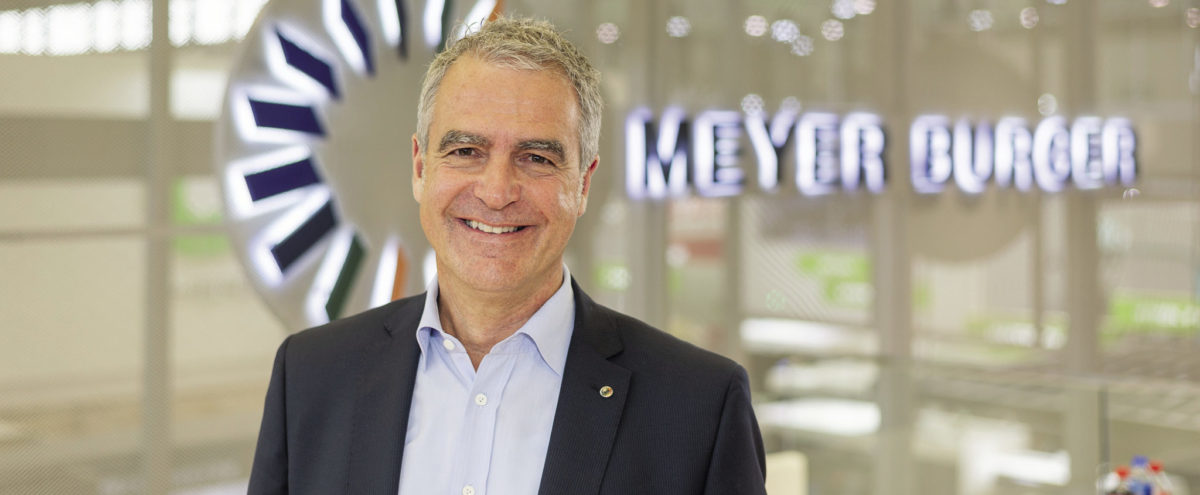A torrid year for Swiss solar manufacturing equipment supplier Meyer Burger brought a CHF39.7 million (€37.6 million) loss in 2019 and will see the CEO and chairman depart, as well as the introduction of shorter working hours at its German production site from next week.
Despite today’s gloomy set of full-year figures, the company insists it will press ahead with its strategic intent to focus on Europe and said it is even considering a solar cell and module manufacturing operation of its own in Germany.
The company last year pursued major strategic changes by consolidating production sites and divesting other interests to focus on heterojunction (HJT) and SmartWire technologies and today it said its 2019 results reflected the transformation.
As far as the figures go, losses before interest and tax (EBIT) came in at CHF28.6 million, down from earnings of CHF2.4 million in 2018. That, according to Meyer Burger, was due to a decline in sales, under-utilization of production capacities and restructuring costs. Orders fell by 24.3% from 2018 to CHF188 million last year. Net sales amounted to CHF262 million – down from CHF407 million a year earlier. Adjusted to account for divestments and currency effects, Meyer Burger said that amounted to a 22.1% decline.
“Business development in 2019 was disappointing,” wrote CEO Hans Brändle, who said he will step down this month. “Sales and margins in the bulk business remained below our expectations. This reflects the difficult market environment due to increasingly strong Chinese competition and the Chinese government’s goals, set out in the ‘Made in China 2025’ strategic plan. We are focusing on the marketing and ongoing development of our own heterojunction/SmartWire connection technologies as well as the highly promising tandem cell technology.”
Realignment
The company said Brändle will be succeeded by chief technology officer, and former MD of German solar manufacturer SolarWorld, Gunter Erfurt. Chairman Remo Lütolf announced he will not stand for re-election at the next AGM.
“Meyer Burger needs peace and confidence to take the next major step in its development,” said Lütolf. “I have come to the conclusion that the company needs fresh personalities to meet these challenges. A new chairman, in addition to Gunter Erfurt as the new CEO, will accelerate this growth momentum.”
The group said it plans to focus entirely on the heterojunction and SmartWire technologies where it can still see an advantage over competitors. “We are confident that these technologies will give Meyer Burger a head start of several years over our competition,” stated the financial update, “and we are pushing ahead with our HJT/SmartWire connection technologies roadmap.” Meyer Burger cited its cooperation with Norwegian headquartered solar manufacturer REC Group to bring heterojunction manufacturing online in Singapore as one of last year’s positive developments.
The company said it had avoided further job cuts despite the annual loss but will begin implementing shorter working hours at its production site in Hohenstein-Ernsthall, in Germany from next week.
This content is protected by copyright and may not be reused. If you want to cooperate with us and would like to reuse some of our content, please contact: editors@pv-magazine.com.




By submitting this form you agree to pv magazine using your data for the purposes of publishing your comment.
Your personal data will only be disclosed or otherwise transmitted to third parties for the purposes of spam filtering or if this is necessary for technical maintenance of the website. Any other transfer to third parties will not take place unless this is justified on the basis of applicable data protection regulations or if pv magazine is legally obliged to do so.
You may revoke this consent at any time with effect for the future, in which case your personal data will be deleted immediately. Otherwise, your data will be deleted if pv magazine has processed your request or the purpose of data storage is fulfilled.
Further information on data privacy can be found in our Data Protection Policy.